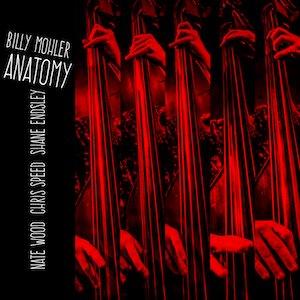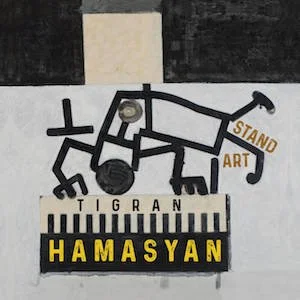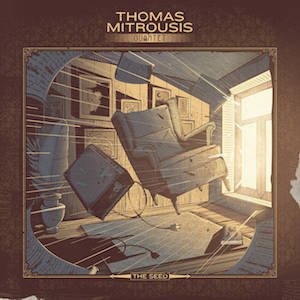Label: Telephone Explosion Records, 2022
Personnel - Brodie West: alto saxophone, clarinet; Nicole Rampersaud: trumpet; Kurt Newman: guitar; Ryan Driver: clavinet; Michael Smith: bass; Blake Howard: percussion; Nick Fraser: drums; Evan Cartwright: drums.
The Toronto-based octet Eucalyptus is spearheaded by the underappreciated saxophonist and composer Brodie West. Granted with an early mentorship by the late avant-garde pianist Misha Mengelberg, West also played with the latter’s longtime musical partner, the Dutch drummer Han Bennink. His latest release, Moves, is Eucalyptus’ sixth full-length album, which shows his fondness for cannily structured cuts with loopy foundations sustaining clever layers atop them.
“Infinity Bananas” offers a hypnotic pulsing-pedal bass drive, clacking percussive constancy, saxophone uneasiness with quick motifs, and terse staccato trumpet phrases with occasionally long airy sounds. Then, “Cuckoo Birds” revolves around a motivic idea that throbs and shifts chromatically. At the bottom, a psychedelic droning experience goes on through the conspicuous cool-sounding clavinet. Different from those two numbers, “Dust in the Wind” brings more harmony and melody to the fore, immersing us in an asymmetrically ambient jazz cloud that is very atmospheric.
The band doesn’t lodge inside the perimeters defined by the jazz idioms, and “It’s in a Move” moves breezily and exotically with a bolero feel. There’s a playful ring-toned synth accompanying the process and solos by West - who flies higher on the marching, psychedelic avant-garde swagger “Snapdragon Hop” - and guitarist Kurt Newman, who articulates phrases with shimmering color in his first appearance on record with this combo. The more sensitive side of the group comes into view in the closer, “Lookie”, a circular ballad with emotional warmth that never really reaches a climax.
“Rose Manor” pivots the beat to downtempo, prompting us to better experience the deep nine-beat cycle bass figure laid down by Michael Smith, as well as the particularly lovely airy sounds and soaring lines of trumpeter Nicole Rampersaud. With aesthetically clean arrangements, Eucalyptus creates a sonority that feels more mood than substance. But bear in mind: this recording is nonetheless pleasant enough in its own way.
Favorite Tracks:
03 - Dust in the Wind ► 04 - It’s in a Move ► 06 - Snapdragon Hop








































